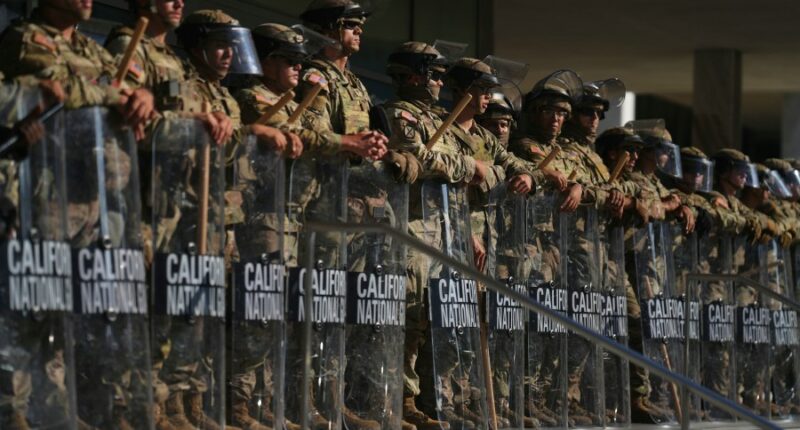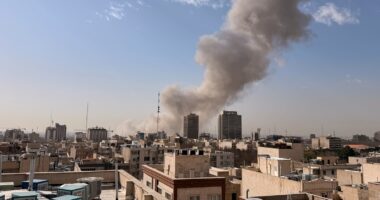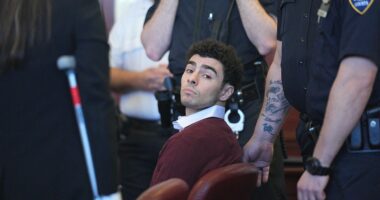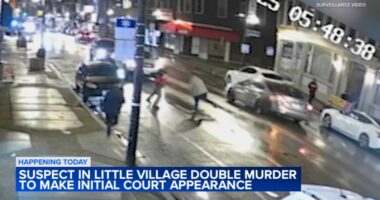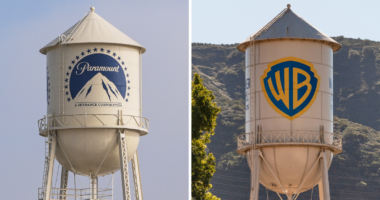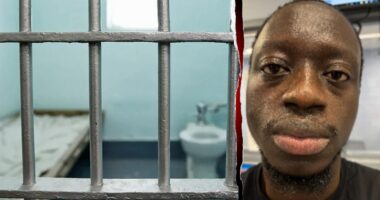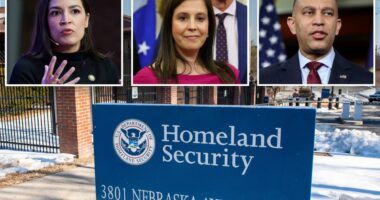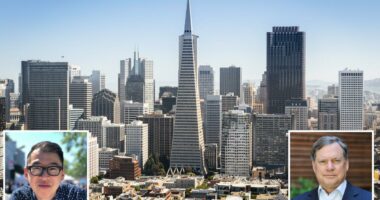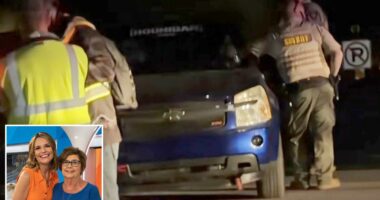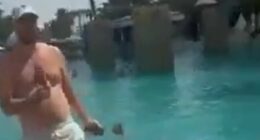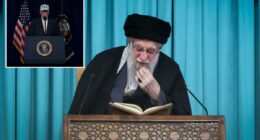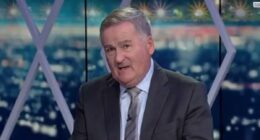Share this @internewscast.com

A federal judge in San Francisco is set to evaluate evidence and hear arguments regarding whether the Trump administration broke federal law by deploying National Guard soldiers and U.S. Marines to Los Angeles following immigration raid protests over the summer.
The administration federalized members of the California National Guard and sent them to Los Angeles despite objections from Governor Gavin Newsom and city officials. This deployment occurred after protests flared on June 7 in response to Immigration and Customs Enforcement agents detaining individuals at several locations.
California is requesting Judge Charles Breyer to demand that the Trump administration relinquish control of the remaining National Guard troops back to the state. Additionally, they seek to prevent the federal government from utilizing military forces in California for executing or assisting with any federal or civilian law enforcement tasks.
The 1878 Posse Comitatus Act restricts the president’s ability to employ the military for domestic policing purposes. This case could potentially set a precedent for future instances where Trump might deploy the guard in California or other states.
The Department of Defense had ordered around 4,000 California National Guard members and 700 Marines to be deployed. Although most have since departed, there are 250 National Guard troops still present at the Joint Forces Training Base in Los Alamitos, according to Governor Newsom.
Newsom achieved an early legal win when Judge Breyer ruled that the Trump administration had violated the Tenth Amendment, which outlines the division of power between federal and state governments, thus overstepping its authority.
The Trump administration immediately filed an appeal arguing that courts can’t second guess the president’s decisions and secured a temporary halt from the appeals court, allowing control of the California National Guard to stay in federal hands as the lawsuit continues to unfold.
After their deployment, the soldiers accompanied federal immigration officers on immigration raids in Los Angeles and at two marijuana farm sites in Ventura County while Marines mostly stood guard around a federal building in downtown Los Angeles that includes a detention center at the core of protests.
The Trump administration argued the troops were needed to protect federal buildings and personnel in Los Angeles, which has been a battleground in the federal government’s aggressive immigration strategy. Since June, federal agents have rounded up immigrants without legal status to be in the U.S. from Home Depots, car washes, bus stops, and farms. Some U.S. citizens have also been detained.
Ernesto Santacruz Jr., the field office director for the Department of Homeland Security in Los Angeles, said in court documents that the troops were needed because local law enforcement had been slow to respond when a crowd gathered outside the federal building to protest the June 7 immigration arrests.
“The presence of the National Guard and Marines has played an essential role in protecting federal property and personnel from the violent mobs,” Santacruz said.
After opposition from the Trump administration, Breyer issued an order allowing California’s attorneys to take Santacruz’s deposition. They also took a declaration from a military official on the National Guard and Marines role in Los Angeles.
The Trump administration’s attorneys argued in court filings last week the case should be canceled because the claims under the Posse Comitatus Act “fail as a matter of law.” They argued that there is a law that gives the president the authority to call on the National Guard to enforce U.S. laws when federal law enforcement isn’t enough.
Trump federalized members of the California National Guard under Section 12406 of Title 10, which allows the president to call the National Guard into federal service when the country “is invaded,” when “there is a rebellion or danger of a rebellion against the authority of the Government,” or when the president is otherwise unable “to execute the laws of the United States.”
Breyer found the protests in Los Angeles “fall far short of ‘rebellion.’”
“Next week’s trial is not cancelled,” he said in a ruling ordering the three-day bench trial.
